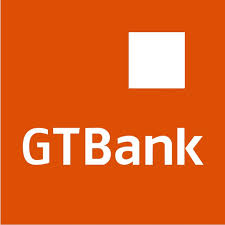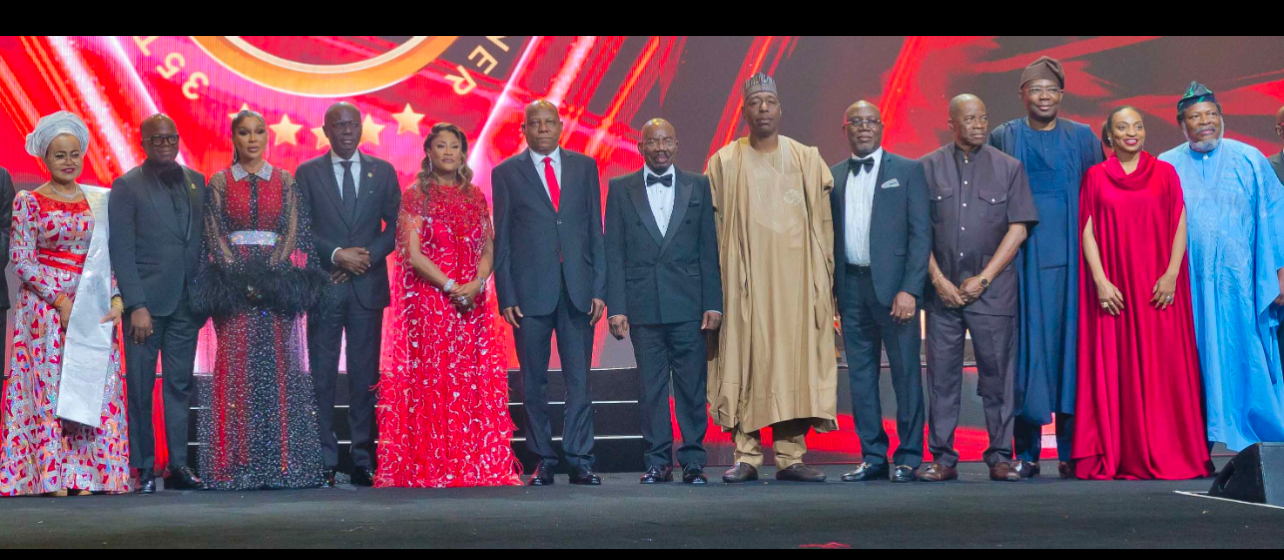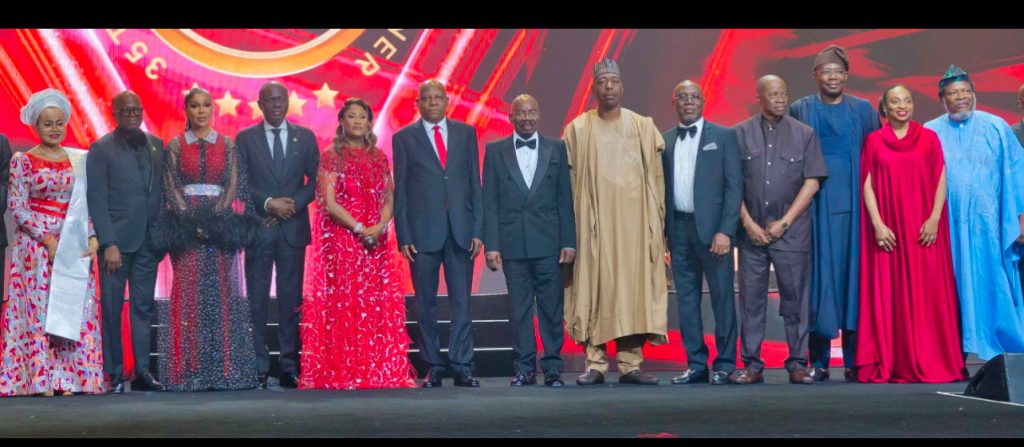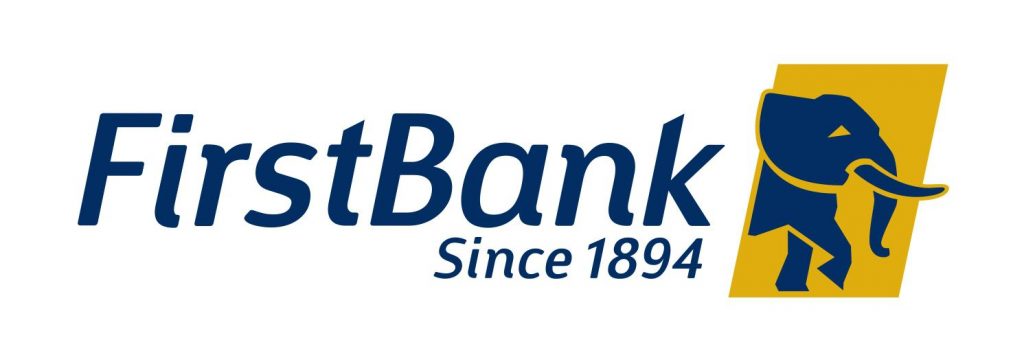brand
Agbaje: Using Fairs to Redefine Retail Banking

Segun Agbaje, the managing director/CEO of Guaranty Trust Bank (GTBank), is not a popular man. To many, he is aloof, too strait-laced, not your typical run-of-the-mill Nigerian. As one of Nigeria’s foremost bankers, he has a reputation for running a tight and efficient ship, is unflinching in his pursuit and recovery of loans from the country’s systemically chronic debtors who have a sense of entitlement believing that they can borrow depositors’ funds without paying back, and does not give a hoot about those critical of his take-no-prisoners approach to banking.
In the media space, he does not seek publicity, he lets his work speak for itself, could not care less if his story or photograph makes the front page of the newspapers, limits his bank’s advertising spend to what he believes is necessary to market and promote GTBank to a wider audience, and through NdaniTV and Ndani Blog understands the power of the social media in reaching out to youths that make a larger percentage of Nigeria’s and regional demographic where the bank operates.
To me, Agbaje is the ideal banker. He is not my friend and we only interact sparingly and strictly professionally as the need arises. Yet, I cannot help but wish that we had more bankers like him in this country. If we did, fewer Nigerian lenders would have to make provisions for unpardonable impairment charges on bad loans given to delinquent debtors, fewer banks would engage in reckless insider lending that threaten their capital adequacy and liquidity ratios, more banks would recognise that they have a fiduciary responsibility to manage their customers’ deposits with care, and more banks would know how to sweat their assets in the most cost-efficient manner to make the most attractive returns to their shareholders.
In all the key parameters used in defining the size of banks, GTBank, among the five Tier 1 banks in the country, is not by any stretch of imagination the biggest. In terms of total assets, loans and advances, customer deposits, number of branches, and presence on the African continent and beyond, FirstBank, Zenith Bank and United Bank for Africa (UBA) stand head and shoulders above GTBank. By Nigerian standards, the “big three” could be called banking behemoths and are very difficult to supplant. Still, GTBank, with its cost optimisation strategy, asset quality and stability ratios, among others, has over time proved to be the most profitable bank in the country. Its stock has remained the bellwether in the banking segment of the Nigerian bourse for years, signposting the confidence institutional and individual investors have in the bank.
But this article is not about GTBank’s financial performance. Its annual and quarterly reports, including those of its peers, are public documents that can be readily accessed for in-depth comparative assessment. What I have found more interesting about the bank is its focus on corporate social responsibility (CSR) and interventions in key economic sectors targeted at strengthening small businesses through not-for-profit fairs and capacity building initiatives. For two years in a row, GTBank has solely funded and hosted its Food and Drink Fair and Fashion Weekends, making them social and tourist events that feature prominently on Nigeria’s social calendar. That is not to say that the bank has not focused on other areas of CSR. Its 2016 annual report showed that GTBank spent about 58 per cent of the N449.62 million of its CSR funds on education alone while community development accounted for another 30.8 per cent.
But it is GTBank’s focus on food, drink and fashion that have been the most impactful publicly, bringing together scores of promising, talented and recognised local and international chefs and food vendors, drinks makers and merchants, fashion houses, milliners, fashion accessory designers and leather goods makers in a dizzying, well-put together and well-thought out extravaganza that leaves the public yearning for more. Both events, which are open to the public, have been attended by several thousands of people, including children, for two years running that have left attendees breathless and wondering how the bank manages to package the two fairs in areas where it has no competencies.
The trick, says Agbaje, whom I had to hound to open up on the success behind both fairs, is getting and attracting the best participants and controlling costs by getting the bank to work directly with the contractors who have to build the stalls, decorate the venue, create play areas and cooking classes exclusively for children, and provide the music, etc., during both fairs; no middlemen or consultants are used by the bank. For him, the fairs present an opportunity for GTBank to deepen its footprint in the retail banking space and increase its SME lending from 2 per cent of the bank’s loan book to 10 per cent over the next five years.
With time, he would also rather extend more loans to small and medium-sized businesses that are more impactful on the economy and achieve a loan recovery rate of 70-80 per cent, than pursue Nigeria’s so-called “big men” with woeful credit track records. Although he was demur about what it costs his bank to host both events, he was emphatic that making money at this juncture is not the overdriving objective, at least not in the short-term, but recognises the long-term benefits not just for GTBank but other Nigerian lenders.
Beyond this objective and given the magnitude of both fairs and their potential to grow into annual events that could attract millions from across the global, Agbaje’s vision is not one to be trifled with. Already, the GTBank Food and Drink Fair and the GTBank Fashion Weekend create thousands of direct and indirect jobs and referrals for hundreds of young Nigerians who have to build the stalls, decorate the venue, and provide the music, entertainment, security and other support services to make them a resounding success. And they have the potential to create even more.
Aside the suppliers, vendors and designers that make brisk business and achieve record sales during the fairs, the Master Classes included in both events are helping to build capacity and drive innovation in the creative industry that has proved to be a major magnate for Nigerian and African youths. By bringing them under one roof, GTBank has also provided a platform for shared services and given them the exposure that help these small businesses to grow and create more employment opportunities.
Without doubt, both fairs are worthy initiatives. But they could be better. In the last two years, GTBank has handled both fairs singlehandedly without support from other institutions and/or the Lagos State government, a direct beneficiary of the events and their spin-offs. In 2016, the food and drink fair alone attracted 25,000 people; this year, it attracted 75,000 people. I do not have the numbers for the bank’s fashion weekends, but I can imagine that the number of visitors will not be far off from those who attended the food and drink fairs.
Given the swelling numbers, both fairs have already started to cause traffic gridlocks on the days they are held. They are also attracting touts and hoodlums who mill around the roads leading to the venue and try to pounce on unsuspecting visitors as they alight from their cars or walk to the venue. On a positive note, big and boutique hotels, restaurants and food caterers on the Lagos Island experience an upsurge in occupancy rates and patronage by participants and the international media who have flown in to take part or cover the events. All these translate to more tourist dollars, taxes and revenue generation for the federal and Lagos State governments.
The import of this should not be lost on the federal and Lagos State governments.
They have to do more than just show a passing interest in what GTBank has started. Given the potential for both fairs to become global destinations for tourists and visitors on the African continent, Lagos State in particular needs to improve on its infrastructure in and around the venue where both fairs are held. It must improve on traffic management and security to ensure that visitors can move about with ease and feel secure. According to Agbaje, in terms of support, the state government has not yet stepped up to the plate, nor has his bank sought for any. But he does acknowledge that with time, GTBank will have to reach out to Lagos State because of the interest both fairs are generating in terms of attendance and participation.
Right now, Agbaje appears to be satisfied with what his bank has accomplished in terms of bringing both fairs to the public’s consciousness. But do the federal and state governments understand the roles that they have to play in institutionalising them and ensuring that they outlast his stewardship in GTBank? Cities like Rio de Janeiro, London, Paris, New York and Melbourne that host major sporting, fashion, carnivals, music and film festivals every year, attracting thousands of visitors do not owe their success just to corporate sponsors but to the municipalities, state and federal governments that understand their roles and lend the required support to the private sector. As such, Lagos State needs to buy into the GTBank fairs as a public-private partnership that can and should work
brand
Access Bank Appoints Mr. Innocent Ike As Substantive GMD/CEO, Recognises Contributions Of Ms Bolaji Agbede As Acting CEO

 Access Holdings (‘Access Holdco’ or ‘the Company’) today announces the appointment of Mr. Innocent Ike as the substantive Group Managing Director/Chief Executive Officer of the Company, effective August 29, 2025, following the receipt of regulatory approval.
Access Holdings (‘Access Holdco’ or ‘the Company’) today announces the appointment of Mr. Innocent Ike as the substantive Group Managing Director/Chief Executive Officer of the Company, effective August 29, 2025, following the receipt of regulatory approval.
brand
ZENITH BANK MARKS 35 YEARS ANNIVERSARY IN GRAND STYLE, RECOGNISES PIONEER CUSTOMERS AND LONG-SERVING STAFF


L-R: Representative of the Nigerian First Lady and Secretary to the Lagos State Government, Barr. Bimbola Salu-Hundeyin; Chief of Staff to Ekiti State Governor, Mr. Adeniyi Adebayo; Group Managing Director/CEO, Zenith Bank Plc, Dame Dr. Adaora Umeoji, OON; Governor of Lagos State, Mr. Babajide Sanwo-Olu; Wife of the Founder & Chairman of Zenith Bank Plc, Mrs. Kay Ovia; Vice President, Federal Republic of Nigeria, Senator Kashim Shettima, GCON; Founder & Chairman, Zenith Bank Plc, Jim Ovia, CFR; Governor of Borno State, Prof. Babagana Zulum; Governor of Ondo State, Mr. Lucky Aiyedatiwa; Deputy Governor of Osun State, Prince Kola Adewusi; Chairman of Access Holding Plc, Mr. Aigboje Aig-Imoukhuede, CFR; Minister of Industry, Trade & Investment, Dr. Jumoke Oduwole; and the Publisher of Thisday Newspaper, Prince Nduka Obaigbena at the Zenith Bank 35th Anniversary and Chairman’s Dinner held at Eko Hotel & Suites, Victoria Island, Lagos, at the weekend.
Amidst pomp and pageantry layered with a mixture of glitz and glamour, Zenith Bank Plc marked its 35th year anniversary with a commemorative Chairman’s Dinner at the Eko Convention Centre, Eko Hotels & Suites, Victoria Island, Lagos on Friday, August 15, 2025. In recognition of their immense contributions to the success of the brand, the bank also presented commemorative awards and plaques to pioneer customers and long-serving staff, who have served meritoriously for 25 years and above. The ceremony brought together key stakeholders of the bank including customers, staff (past and present), regulators, partners, and friends, who all came together to celebrate 35 years of excellent and innovative banking services that has propelled the banking giant to the peak of Nigeria’s financial industry. Among the eminent personalities who graced the occasion were the Vice President, Federal Republic of Nigeria, Senator Kashim Shettima, GCON; Governor of Lagos State, Mr. Babajide Sanwo-Olu; Governor of Ondo State, Mr. Lucky Aiyedatiwa; Governor of Taraba State, Dr. Agbu Kefas; Governor of Borno State, Prof. Babagana Zulum; Governor of Delta, Rt. Hon. Sheriff Oborevwori, who was ably represented by the Deputy Governor, Sir. Monday Onyeme; Alhaji Aliko Dangote, GCON; and former governors Peter Obi and Udom Emmanuel (also an alumnus of Zenith Bank).In her welcome address, the Group Managing Director/ Chief Executive of Zenith Bank Plc, Dame Dr. Adaora Umeoji, OON applauded the Founder and Chairman, Jim Ovia, CFR for his foundational role in building the structures for what has today become a shining example of excellence in the Nigerian banking industry and a globally recognised financial institution. She described him as “the Godfather of modern banking and the Nostradamus of our time, who through sheer tenacity, foresight, and uncompromising integrity transformed a modest vision into the financial powerhouse we celebrate today”.In his goodwill message, the Vice President, Federal Republic of Nigeria, Senator Kashim Shettima, GCON, a proud alumnus of the bank, praised the Founder and Chairman of Zenith Bank Plc, Jim Ovia, CFR for being at the heart of the very successful brand that today stands as Nigeria’s largest bank by Tier-One capital. According to him, “Long before technology became the bloodstream of global finance, Jim Ovia had already woven it into the DNA of Nigerian banking industry. He introduced innovation not as a fashion but as a philosophy, placing Zenith Bank on a path where excellence is not an ambition but a standard. Yet his true signature is not only on the balance sheet. For Jim Ovia, the people make an institution. His greatest investment has been in human capital – in transferring his experience and sense of adventure to generation after generation of bankers and investors forged at Zenith Bank”.
Also speaking at the event, the Founder and Chairman of Zenith Bank, Jim Ovia, CFR expressed its immense appreciation to all guests for joining the bank in celebrating this momentous occasion. He thanked the bank’s esteemed customers and shareholders for their trust, confidence and shared vision; the regulators, for their guidance over the years; his friends and partners, for being a constant source of strength; the Zenith Bank family led by the exceptional Group Managing Diector/CEO, Dame Dr. Adaora Umeoji, OON, for their loyalty and commitment; and his beloved wife and family for their love and support.Founded in May 1990, Zenith Bank has grown from humble beginnings into one of Africa’s leading financial institutions with branches across the 36 states of the federation and the FCT, Abuja as well as subsidiaries in the United Kingdom, Ghana, Sierra Leone, Gambia, France, UAE and a representative office in China.
brand
FirstBank Retains Top Spot as Nigeria’s Best Bank for ESG At 2025 Euromoney Awards

 FirstBank, the West African premier financial institution and financial inclusion services provider, has emerged as Nigeria’s Best Bank for Environmental, Social, and Governance (ESG) at the prestigious Euromoney Awards for Excellence 2025, held recently in London. This marks FirstBank’s second consecutive win in the ESG category, affirming its leadership in sustainable finance and responsible banking across Nigeria.
FirstBank, the West African premier financial institution and financial inclusion services provider, has emerged as Nigeria’s Best Bank for Environmental, Social, and Governance (ESG) at the prestigious Euromoney Awards for Excellence 2025, held recently in London. This marks FirstBank’s second consecutive win in the ESG category, affirming its leadership in sustainable finance and responsible banking across Nigeria.
The Euromoney Awards for Excellence are regarded as one of the most coveted accolades in the global financial industry. The highly competitive selection process involves rigorous analysis and assessment, measuring performance against strategic and impact-oriented criteria.
The Bank earned the award through its deepened sustainability commitments embedded across its operations and community initiatives. In 2024, FirstBank screened 237 transactions worth over ₦3 trillion for sustainability risks, integrating ESG considerations into its credit framework.
Among its flagship sustainability initiatives, FirstBank commenced a tree planting campaign in partnership with Nigeria Conservation Foundation (NCF), planting over 30,000 trees in 16 locations across Nigeria. This was the first phase of its 50,000-tree initiative, projected to absorb approximately 720 tonnes of CO₂ by the end of 2025, contributing to climate resilience and supporting biodiversity preservation.
FirstBank has been proactive in gender inclusion through the Gender Market Strategy, disbursing over ₦43 billion FirstGem loans to women-led businesses in 2024. The Bank’s commitment to inclusive banking saw a significant increase in the worth of transactions facilitated by FirstMonie agents to over ₦9 trillion.
The Bank prioritises ESG/sustainability capacity building, evidenced by the training of over 9000 employees, and its webinars and workshops reaching over 2,000 SMEs and corporates. The bank’s investment in leadership for over 2,000 female employees through the FirstBank Women Network has demonstrated a dedicated structural commitment to cultivating a knowledgeable and diverse workforce catering to the dynamic ESG landscape.
Commenting on the award, the Chief Risk Officer of the Bank as well as the Chairman of the FirstBank Sustainability Committee, Patrick Akhidenor said, “We are honoured to receive this prestigious award for the second time in a row, which is a validation of our efforts to create a sustainable and inclusive future for all our stakeholders. Our approach to sustainability is hinged on three pillars: education, health and welfare; diversity and financial inclusion; responsible lending, procurement and climate initiatives”
He added: “We remain focused on driving impact through purposeful initiatives and inclusive growth, ensuring that our ESG efforts continue to create meaningful change in communities across Nigeria and beyond.”
The continued success in ESG and sustainability is driven by FirstBank’s vision to be Africa’s bank of first choice, leading with purpose, responsibility, and innovation.
-

 news5 years ago
news5 years agoUPDATE: #ENDSARS: CCTV footage of Lekki shootings intact – Says Sanwo – Olu
-

 lifestyle5 years ago
lifestyle5 years agoFormer Miss World: Mixed reactions trail Agbani Darego’s looks
-

 lifestyle4 years ago
lifestyle4 years agoObateru: Celebrating a Quintessential PR Man at 60
-

 health4 years ago
health4 years agoChairman Agege LG, Ganiyu Egunjobi Receives Covid-19 Vaccines
-

 health5 years ago
health5 years agoUPDATE : Nigeria Records 790 new cases of COVID-19
-

 health5 years ago
health5 years agoBREAKING: Nigeria confirms 663 new cases of COVID-19
-

 entertainment8 months ago
entertainment8 months agoAshny Set for Valentine Special and new Album ‘ Femme Fatale’
-

 news4 months ago
news4 months agoBREAKING: Tinubu swears in new NNPCL Board


